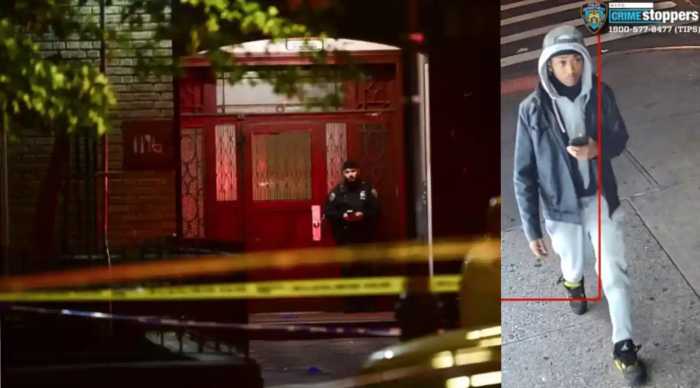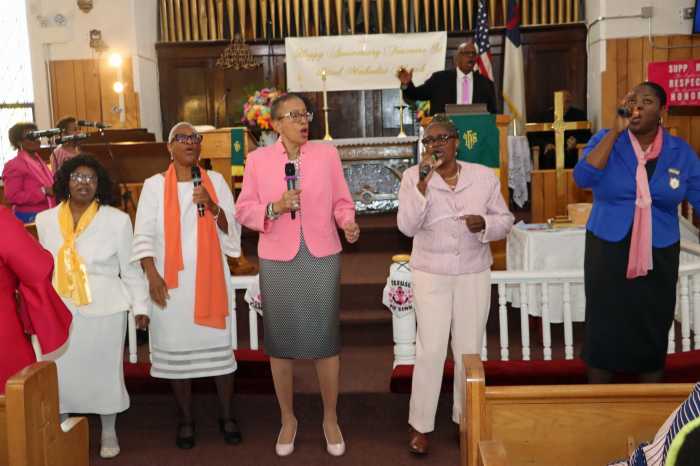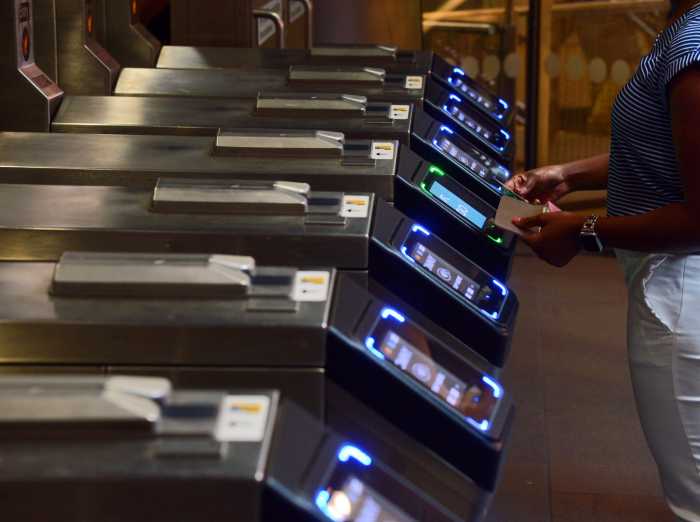In late August 1968, as the Democratic National Convention met in Chicago, tens of thousands of protesters descended on that city to protest Pres. Lyndon B. Johnson’s prosecution of the war in Vietnam and the nomination of his surrogate, Vice Pres. Hubert Humphrey.
In four vividly televised days of tear gas, night sticks and bloodshed, protesters camped out in the lakefront Grant Park clashed with the Chicago police under the control of Mayor Richard J. Daley, the current mayor’s father. Meanwhile, a mile or so west, at the International Amphitheater, located at the site of the city’s old stockyard slaughterhouses, the Democratic Party of Franklin Roosevelt and John F. Kennedy imploded in full view of the American public. Peace delegates committed to Minnesota Sen. Eugene McCarthy and those once pledged to New York Sen. Robert Kennedy, slain earlier that year while campaigning, battled with “regular” Democrats loyal to the war, Johnson, and Humphrey in credentials and platform fights that raged for several days.
When Connecticut Sen. Abraham Ribicoff rose in a last-gasp effort at stopping Humphrey by nominating little-known South Dakota Sen. George McGovern, he turned the convention floor into a tumult when he intoned, “With George McGovern as president, we won’t need Gestapo tactics in the streets of Chicago.” Though there was no audio feed from the Illinois delegation, Daley could clearly be seen at the front of the convention floor, lips snarled, repeating the words, “fucking kike.”
Many commentators on television assigned at least part of the blame to the police, and an official inquiry, chaired by attorney Dan Walker, who later went on to become an anti-Daley Democratic governor of Illinois, termed the events of that week in late August “a police riot.”
But inappropriate conduct by the Chicago police and mayor was not the storyline that stuck with American voters in what was little more than two months remaining until the November election. Instead, the Democratic Party as a whole got saddled with a reputation for failing in its job to provide leadership at a moment of unprecedented division. The party was riven by divisions between young radicals and old bosses, and Humphrey, edging ever so slowly toward independence from Johnson, was hopelessly and haplessly caught in the middle.
It was in that environment that a man as un-charismatic as Richard Nixon came to be grudgingly accepted as a healer, even if just by a whisker when the votes were finally counted.
It’s late August again, big anti-war protests are planned against the incumbent president and the election this year also looks to be a squeaker.
Yet the party in power this year, the Republicans, clearly believe that protests against their convention here in New York may rebound to their credit, not that of their opponents.
“I think the Democrats are going to have to be careful about not letting the protesters get out of hand,” The New York Times this past Sunday quoted Ed Gillespie, the Republican national chair, as warning. “The line between the official Democratic Party and labor protesters, environmental protesters and anti-war protesters is fairly blurry, and I’m not sure they want to have Democrats engaging in violence in New York against our convention. It would seem disrespectful and anti-democratic.”
Has there ever been such a clear road map to the political dirty tricks to follow?
George W. Bush, elected as the candidate of “compassionate conservatism” in 2000, has spawned unprecedented rancor and polarization among the American electorate, never mind the nation’s beleaguered image in the world. The convention is being planned under the watchful eye of New York’s Republican mayor, Michael Bloomberg, who has been haughty and dismissive toward innumerable reasonable requests for public protest permits.
Yet, if Bloomberg’s months of abdicating responsible leadership over a city where anti-Bush sentiment is rife leads to unfortunate clashes between protesters and the police, the Bush campaign clearly is fully prepared to lay the debacle at the feet of Sen. John Kerry, who has notably stayed at arm’s length, if not further, from those planning to dissent.
None of this should really be surprising. Borrowing equally from “Alice in Wonderland” and George Orwell, George W. Bush’s Republican Party has turned meaning on its head.
A decorated war hero becomes a conniving liar, while a man we all know played the system to avoid combat gets a pass.
A war waged to ferret out weapons of mass destruction posing immediate threat to the U.S. is re-packaged as a broader effort against international terrorism, even as links between Saddam Hussein and Osama Bin Laden go unproven and the “mission accomplished” bleeds into a quagmire which invites the very terrorist activity it was ostensibly launched to combat.
The aim of getting the government off the backs of the American people somehow incorporates the goal of embedding within the U.S. Constitution the very first amendment that would specifically deny rights to a class of citizens. Then, in a last minute feint, Bush’s vice president is trotted out to speak warmly about his gay daughter.
The cynicism is breathtaking.
If the Democrats of 1968 proved themselves unworthy of charting America through a divisive rupture in civic life, George W. Bush’s Republicans in 2004 have easily done worse.
Protesting Sunday is the decent, American thing to do.
WRITE US!
Email letters to Editor@gaycitynews.com
Or fax to 646.452.2501
Or mail to 487 Greenwich St., Suite 6a, New York City 10013
Please include a phone number for confirmation purposes only.
We reserve the right to edit all letters to meet space constraints.













